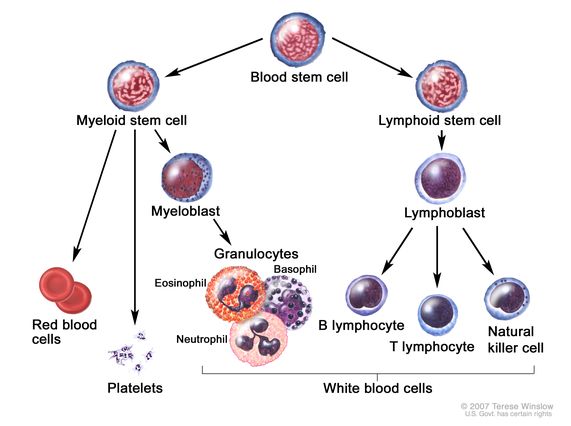leukocyte
(LOO-koh-site)
A type of blood cell that is made in the bone marrow and found in the blood and lymph tissue. Leukocytes are part of the body’s immune system. They help the body fight infection and other diseases. Types of leukocytes are granulocytes (neutrophils, eosinophils, and basophils), monocytes, and lymphocytes (T cells and B cells). Checking the number of leukocytes in the blood is usually part of a complete blood cell (CBC) test. It may be used to look for conditions such as infection, inflammation, allergies, and leukemia. Also called WBC and white blood cell.
